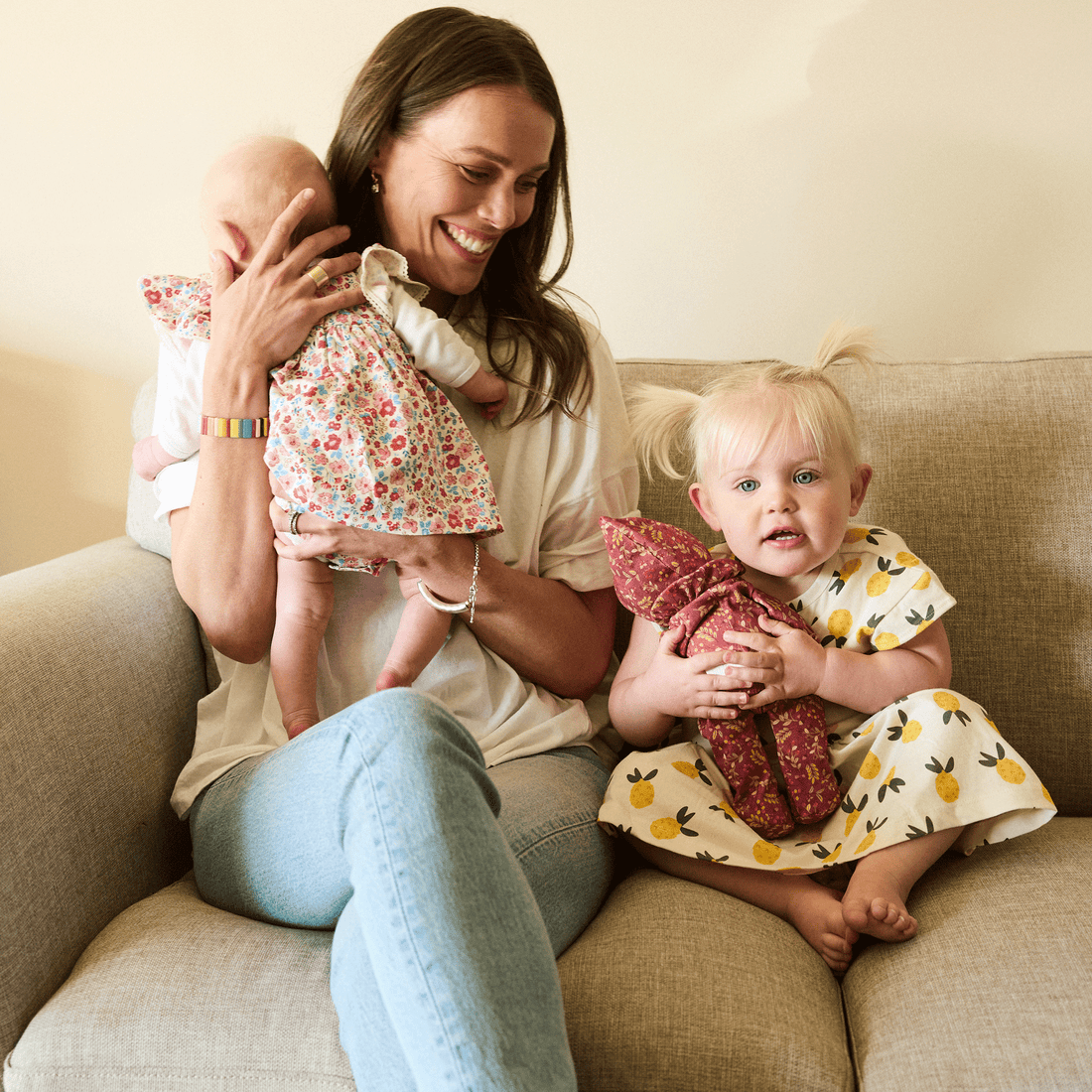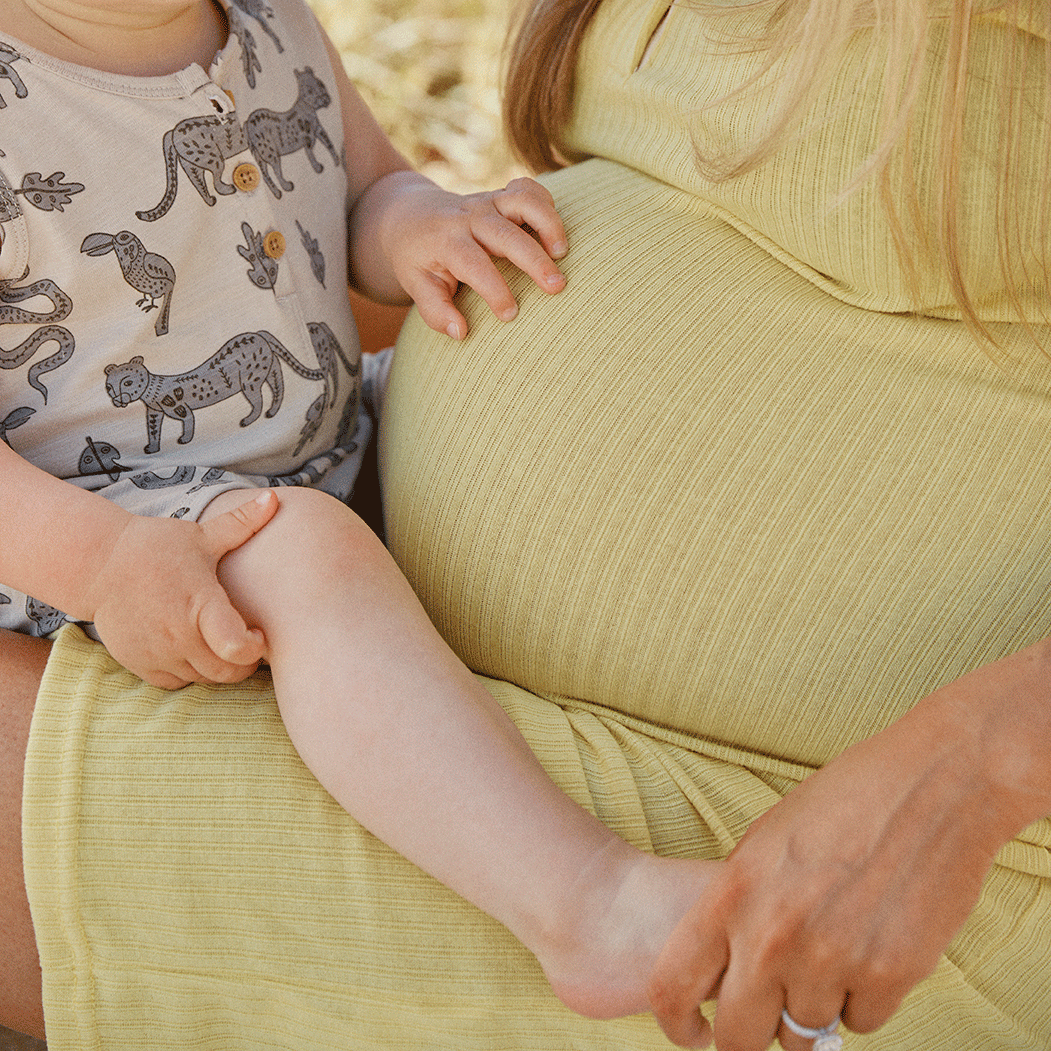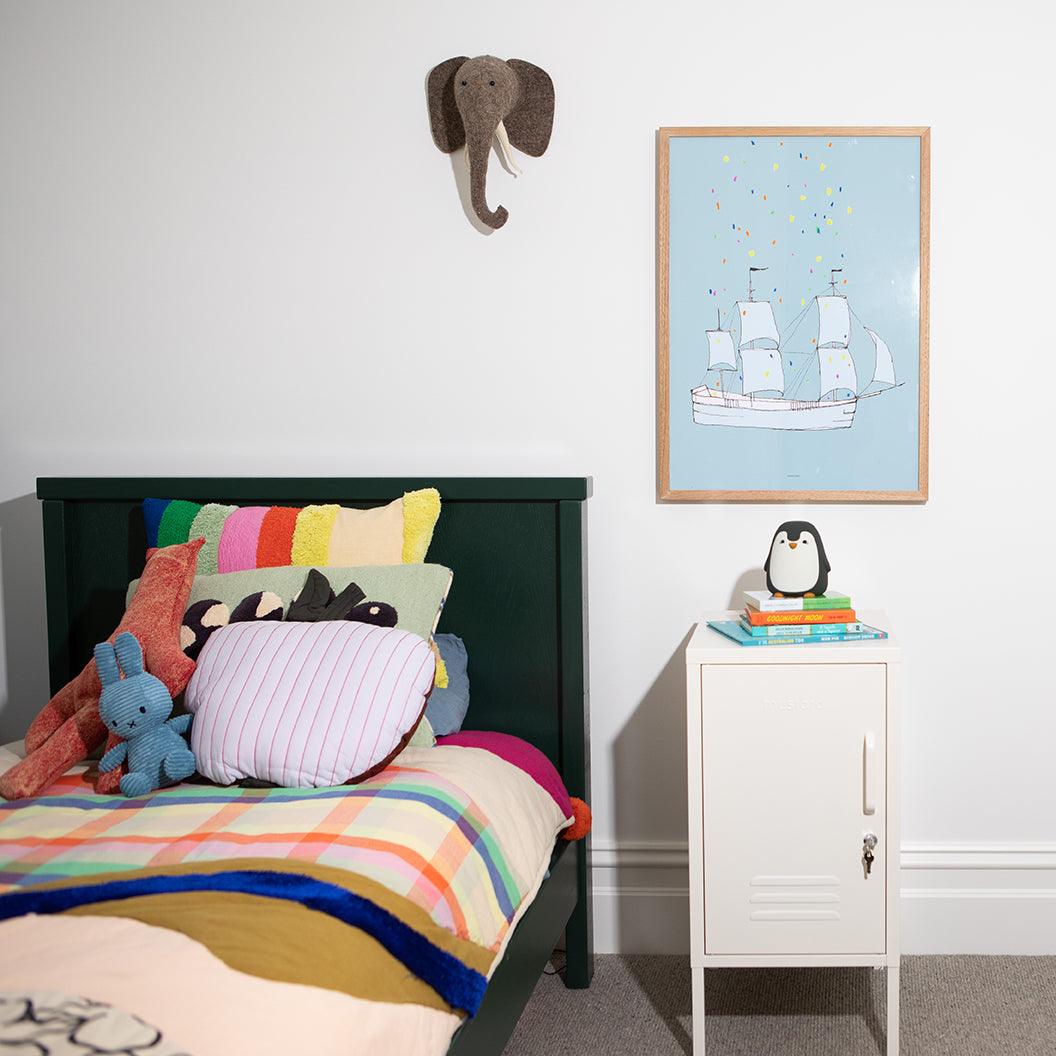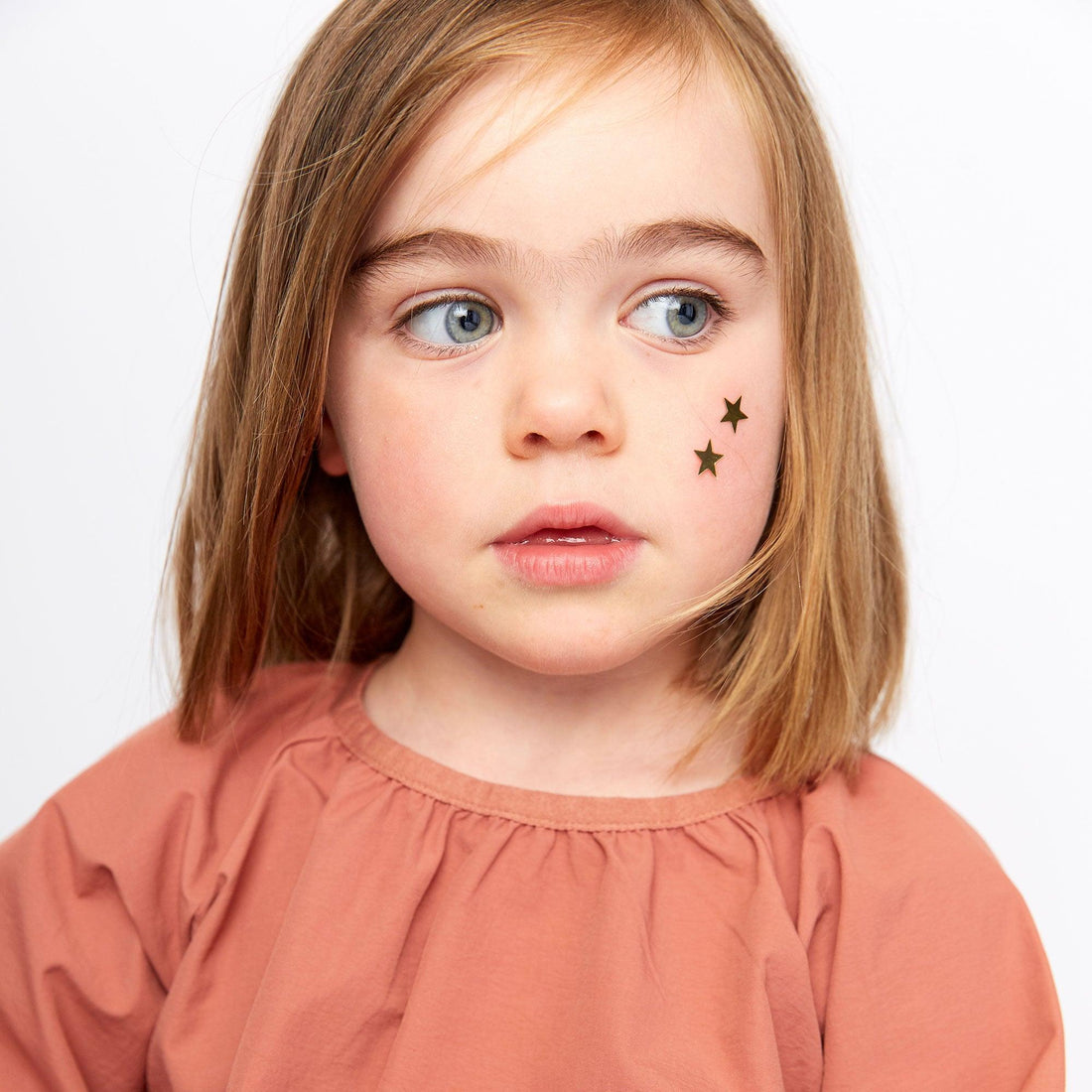Despite how ready and excited your toddler can be before the baby arrives, the reality of a crying baby taking up their favourite people’s time can be a lot for a toddler or preschooler, and there are some common complications that can arise. “For toddlers having a new sibling is a novelty, they might enjoy the fuss and commotion, but soon the gloss will fade and typically the older child becomes difficult to manage at the 3-month mark.
Why 3 months? “This is the average window of time that a child will enjoy a new toy, before becoming tired of it and wanting to move on to something else,” says Amanda. “When it comes to a newborn, we can’t just pop them in a box at the top of the cupboard, so toddlers understandably become frustrated that this now-old toy continues to divert attention; in a nuclear family, they become especially perturbed by the decreased availability of their mother.” When this happens you might notice their sleep becomes more disturbed, toilet skills regress or they start seeking help for previously acquired skills like dressing or eating. You might also see them get more angry, and that anger be directed towards the baby.”
Thankfully, there are a lot of things you can do to redirect these behaviours.
Amanda’s Top Tips for Helping Toddlers Adjust to a New Baby
1. Involve them in parenting
Involve the older sibling in the care of the baby, even if it’s basic, like choosing the newborn’s clothes or fetching a nappy. When they say, “I can help!” embrace it and direct them on how to do it.
2. Celebrate their involvement with others
When visitors admire the newborn, ensure to mention aloud that the older sibling helped apply the nappy or chose their clothing. Then a visitor’s compliment directed to the newborn will be felt by the sibling.
3. Try not to ‘lose’ mum
In the setting of a breastfeeding mother, often the father or non-breastfeeding parent spends all the time with the older sibling. Aside from breastfeeding, there is no newborn task that a father can’t perform, so unless during breastfeeds, the newborn should be with the father as much as possible, freeing the mother to recover and replenish, while spending time with the older sibling. We have dubbed this “Cross Parenting” and go deep on it in our Toddler Toolkit parenting program.
4. Consider introducing a bottle
Doing this for one feed a day or so means that feeding can be done by both parents and the mother is freed to spend some one-on-one time with their older child, maybe doing their nighttime routine with them.






















